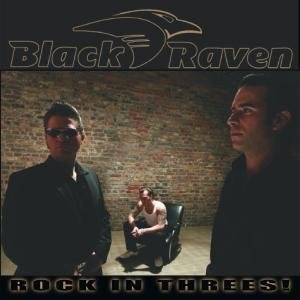

As they descend in the lift, the reflection of her face in the glass takes Vijay back in time to a college party, where he and Meena wandered off by themselves while their classmates waltzed and twirled – and the two lovers ended up dreaming of what it would be like to be forever in love, forever carefree and without anything to keep them apart. On his way out of the publisher Mr Ghosh’s office, Vijay accidentally runs into Meena, Mr Ghosh’s wife and once Vijay’s sweetheart. Hum aapki aankhon mein: This song comes about in a roundabout way. From this despair and unhappiness, the scene shifts to one of an uncrowded, misty lane – equally dark? Equally dim and dreary? But no Abdul Sattar shines through – a ray of light in an otherwise dark world, tripping along happily as he sings of relieving those whose woes are dragging them down.Ĥ. Vijay, she has already discovered, is as badly off as her, without even the money to buy himself a meal. In a dreary, deserted eatery, Gulabo has been telling Vijay how she’s always known only ridicule. The way he’s introduced is very appropriate too: in the midst (literally, and figuratively) of gloom, Sattar bhai makes a joyful entry. Sar jo tera chakraaye: What can a Guru Dutt film be without Johnny Walker? And here too, Johnny Walker makes his almost mandatory appearance, as our downtrodden hero’s friend, the always-cheerful, always-supportive maalish-wallah (masseur), Abdul Sattar. It’s also, at just over 2 minutes long, quite short, and brought on as a flashback, caused by Vijay’s fleeting glimpse of Meena, the girl he once loved.ģ. Where Jaane kya tune kahi or the more bitter songs of Pyaasa have connotations that go far beyond the obvious, this less-popular song is probably more obscure because it’s a pretty much run-of-the-mill romantic song. Ho laakh musibat raste mein par saath na apna chhoote: The chorus – “ peechhe-peechhe duniya hai, aage-aage hum” ( “the world is behind us, we’re far ahead”) – is the literal essence of this song: of flying high and leaving the world behind of being so happy together in one’s newfound mutual love, that nothing else matters. The close-ups of Waheeda Rehman’s face, heavy-lidded eyes and all, add to that effect.Ģ. But why? Is he – as she imagines – intoxicated by her beauty and her song? Or is he merely trying to track down his lost poems?Ī beautiful song, sung as a practised tool to charm and seduce. Her voice and her words beckon him on, as does her worldly-wise gaze, her eyelids heavy with a calculated seduction. So she lures him on, through the tall-pillared, ‘respectable’ locales of the smart part of town, away into her area, small, squalid and narrow-laned. She doesn’t know him either all she sees is a prospective client, a man attracted by her beauty and her song. This is (though Vijay still doesn’t know it), the prostitute Gulabo, the woman who has bought his poems. He disturbs a woman who’s been sitting there, and she gets up – her face hidden by her sari pallu – and recites a line from his poem.

Jaane kya tune kahi: The poet Vijay – scorned and rejected (outright by his brothers, less so by his friend, who nevertheless makes fun of Vijay’s ‘innocence’ at not having a whore to bed) – goes searching for some of his lost poems (sold off by his brothers), and ends up on a park bench. In chronological order, as they appear in the film, with a little bit of background in each case:ġ. Because though S D Burman’s music is sublime, it is the songs in their entirety – Sahir’s earth-shattering lyrics, the voices of Rafi and Hemant and Geeta Dutt – and, very importantly, the picturisation of those songs – that make them memorable. I’d initially thought I’d call this post ‘Some thoughts on the music of Pyaasa’, but that isn’t what it is, actually. So, no review of this film – but some random thoughts that came to mind as I rewatched Pyaasa, especially its songs, all over again. But do I really have anything new to say about Pyaasa that hasn’t been said before? It’s a film I’ve seen a few times – always with increasing appreciation, as I begin to see more nuances, more things to admire about it. Interestingly, this was also the first song in the film.

Why not begin, I thought, where I left off in my last post? The last song I listed in my post on my ten favourite Waheeda Rehman songs was Jaane kya tune kahi, from Pyaasa.


 0 kommentar(er)
0 kommentar(er)
